[Gouqi Island Shanghai-Suzhou Tour] 5. Shajiabang sings reed swamps and entertains sixteen parties
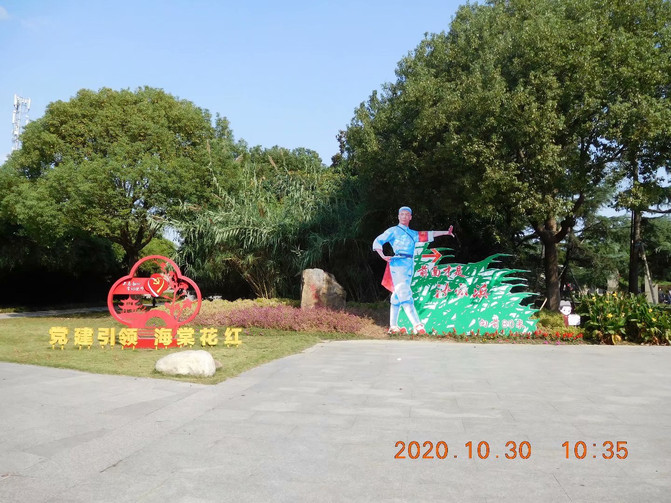
[Gouqi Island Shanghai-Suzhou Tour] 5. Shajiabang sings reed swamps and entertains sixteen parties
2020/10/30, I had a one-day trip to three attractions, so I divided it into three chapters
It took nearly two hours to drive from Shanghai to Shajiabang Scenic Area.
As soon as you hear or see the name of the scenic spot, you will definitely think of the Peking Opera "Shajiabang", in which Aqing's sister-in-law Diao Deyi and Hu Chuankui left the memories of people born before the 1970s.
Shajiabang Scenic Area combines natural reed swamps and is designed according to the story of the Peking Opera "Shajiabang" and local customs. The main theme is to build a natural green ecological scenic spot in the Jiangnan water town with mighty reeds, wide waters and dense greening. Based on revolutionary historical facts, the legendary story of the Peking Opera "Shajiabang" and the cultural and historical accumulation of Shajiabang, various scenic spots are cleverly set up. It is a national 5A-level scenic spot, mainly including the Revolutionary History Memorial Hall, National Defense Education Zone, Hongshi Village, Ludang People's Families, Ludang Wetland, reed Maze and other parts are worth a visit.
In order to let young people understand, first explain the background.
The modern Peking Opera "Shajiabang" artistically reproduces the heroic struggle between the New Fourth Army and the people of Jiangnan water towns against the Japanese invaders. In May 1939, Ye Fei led more than 500 officers and soldiers of the Sixth Regiment of the New Fourth Army to march eastward to the Yangcheng Lake area of Changshu under the unit designation of the "Jiangnan Anti-Japanese Volunteer Army"(referred to as "Jiangkang"). After a period of struggle, the anti-Japanese armed forces continued to grow and the anti-Japanese guerrilla base areas were consolidated. In September 1939, Ye Fei led the main force of the "Jiangkang" to withdraw north to Yangzhong, Zhenjiang for training. The 36 seriously injured commanders and fighters were unable to retreat. Under the protection and care of the underground party and the local people, they not only healed their injuries, but also developed and strengthened the anti-Japanese armed forces. In 1960, the Shanghai City People's Shanghai Opera Troupe used this true story as material to create and perform "The Fire of the Ludang". In the spring of 1963, the creative team led by the famous writer Wang Zengqi adapted the Shanghai opera "Ludang Fire" into Peking Opera, and changed its name to "Shajiabang" under the instructions of Chairman Mao. From then on, vivid characters such as Aqingsiao and Guo Jianguang have been well-known across the country and deeply rooted in the hearts of the people.
"Shajiabang" near Changshu was just a small village in a water town 800 years ago. It was once called Ludang Township in history, and now there is Ludang Village. With the approval of the provincial government, Ludang Township was renamed Shajiabang Town in March 1992.
First, the tour guide took us to a large stone tablet. On the facing wall was the inscription of Ye Fei, head of the Sixth Regiment of the New Fourth Army and the late Vice Chairman of the Standing Committee of the National People's Congress.
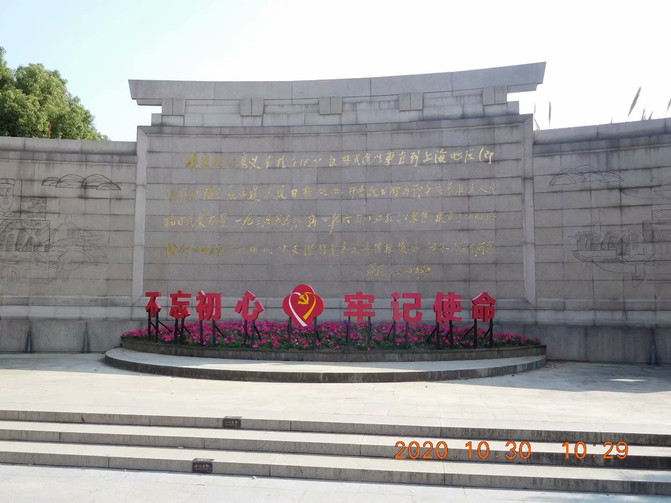
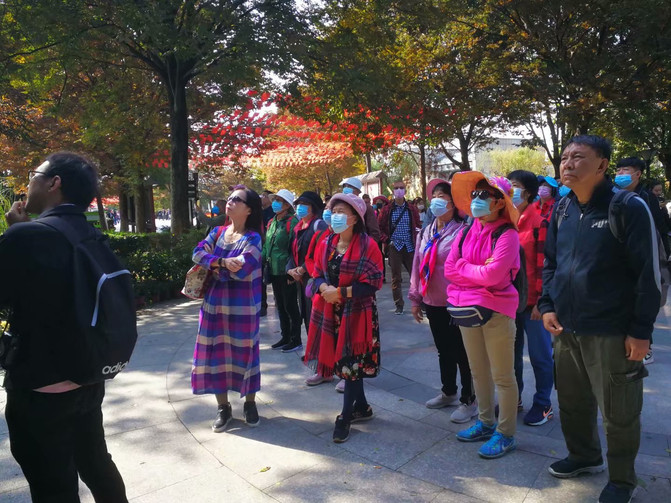
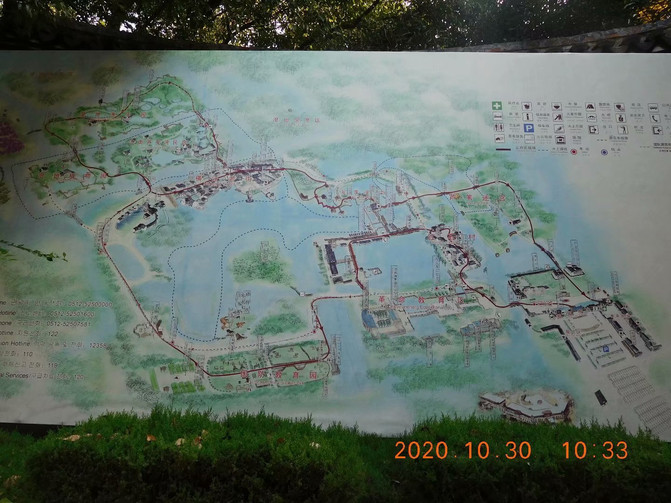
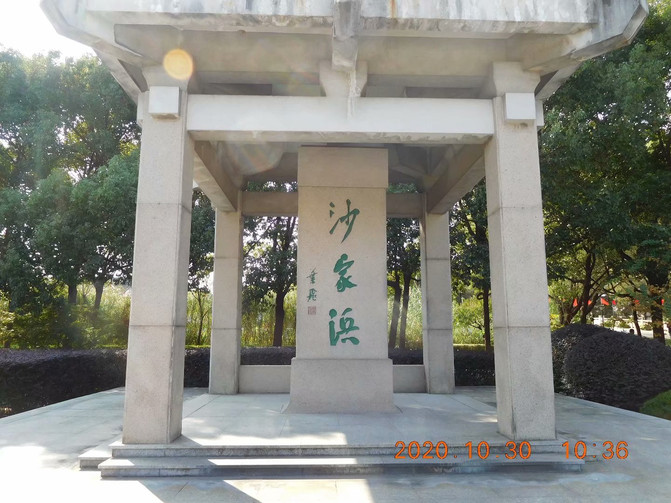
When I took a sightseeing bus to Old Street, I first heard the stage performing a battle of wits in Shajiabang. The actors sang with clear words and clear eyes. The audience was intoxicated and kept taking photos and videos.
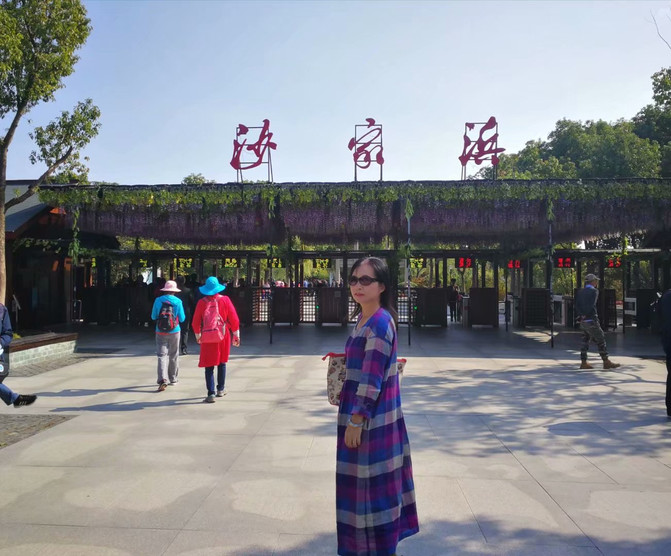
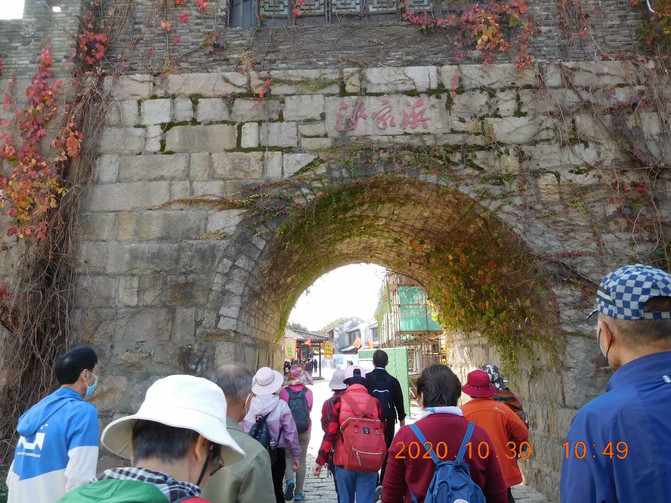
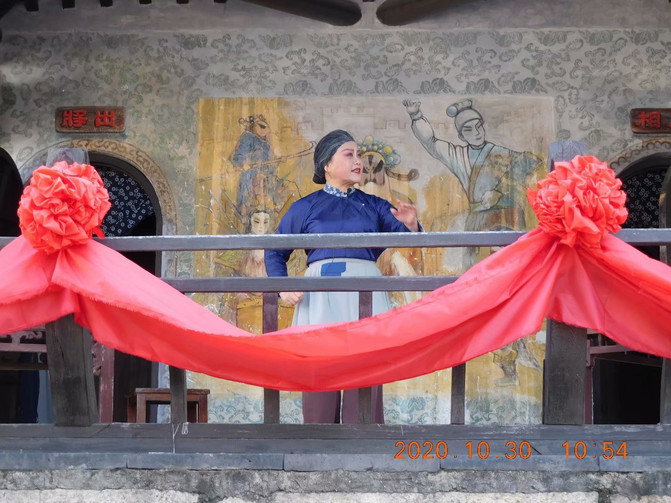
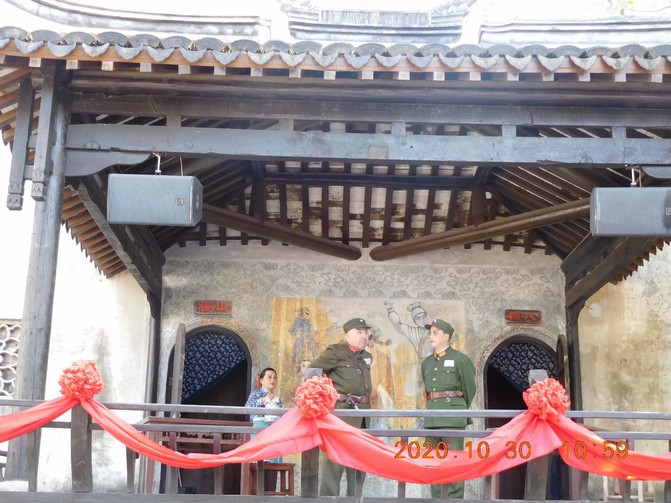
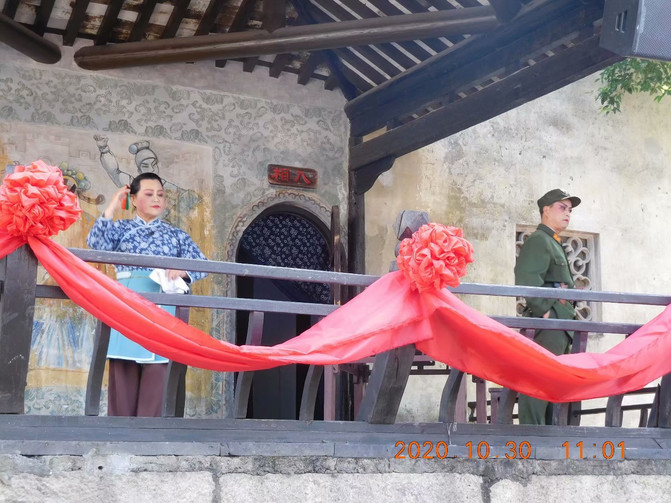
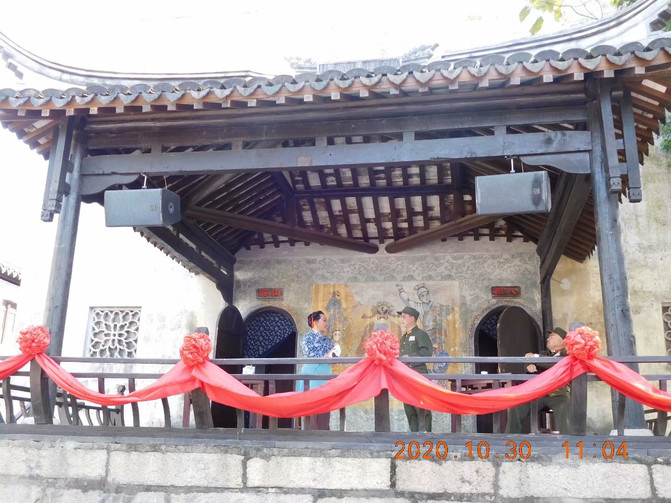
Walk onto the Eastward Bridge, which is named in commemoration of the New Fourth Army's eastward march. The Dongjin Bridge has a total length of 39 meters to commemorate the eastward march of the Sixth Regiment of the New Fourth Army in 1939; the bridge deck is 7.7 meters wide and aims to not forget the July 7th Incident.
Overlooking Hongshi Village, you can see the breeze at night and the reeds leaning on you, like a girl from the south of the Yangtze River telling her endless feelings, beautiful and touching.
Walk freely in the Hengjing Film and Television Base (also known as Old Street) with the cool breeze blowing on the river, making it very refreshing and comfortable.
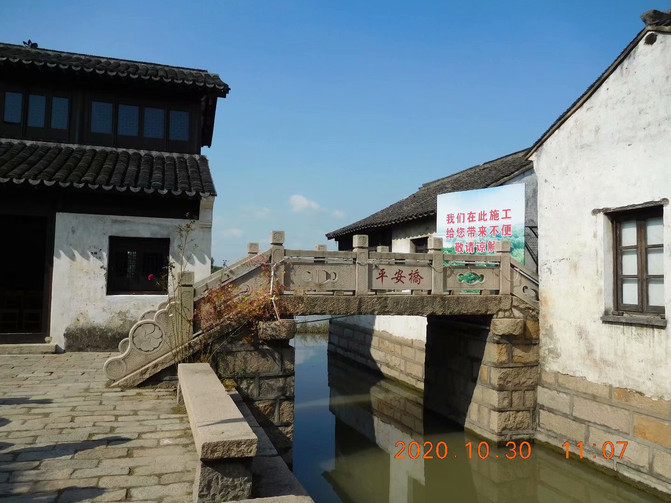
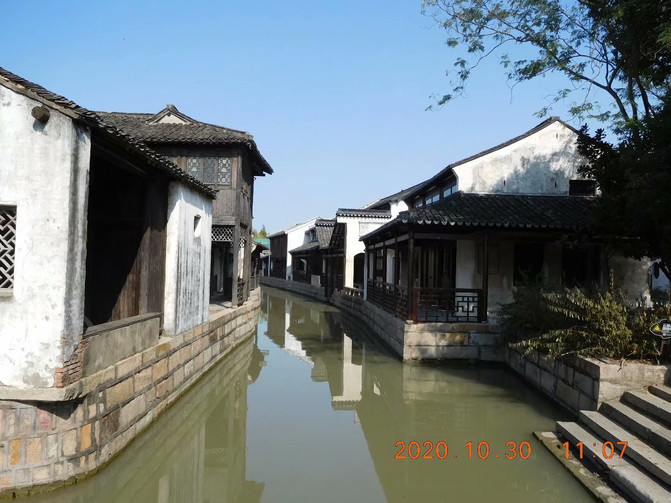
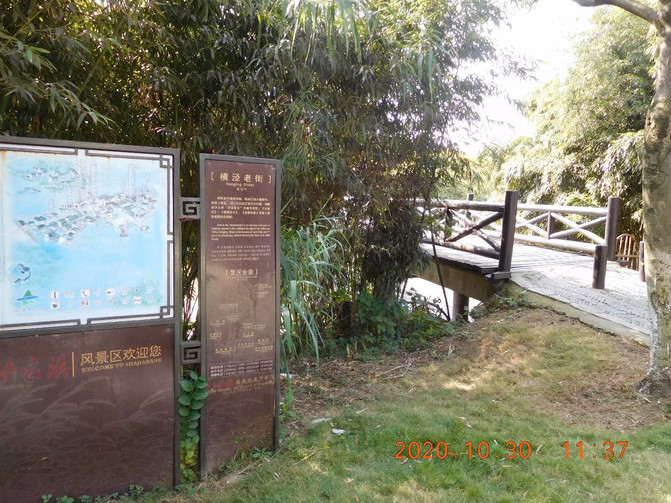
The Hengjing Old Street Film and Television Base retains the old appearance of rural buildings, absorbs the essence of Jiangnan towns, and reproduces the rural style and cultural characteristics of Jiangnan in the 1930s and 1940s. The thirty-episode TV series "Shajiabang" was completed here. In addition, TV series such as "Yu Eryu","Golden Age","Chinese Wine King", and "Jasmine Flower" were filmed here.
Hengjing Old Street is lined with shops and small bridges and flowing water. Occasionally, the newlyweds with spring breeze pass by, and they will always unite in Liushun Hall.
Chunlai Teahouse reproduces the original shape of small teahouses all over Shajiabang villages at that time."A seven-star stove was built and three rivers were cooked in copper pots; and an eight immortals table was set up to entertain sixteen parties."
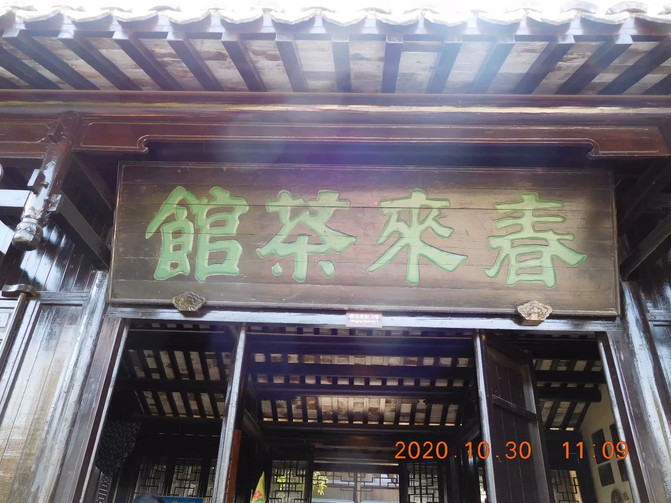
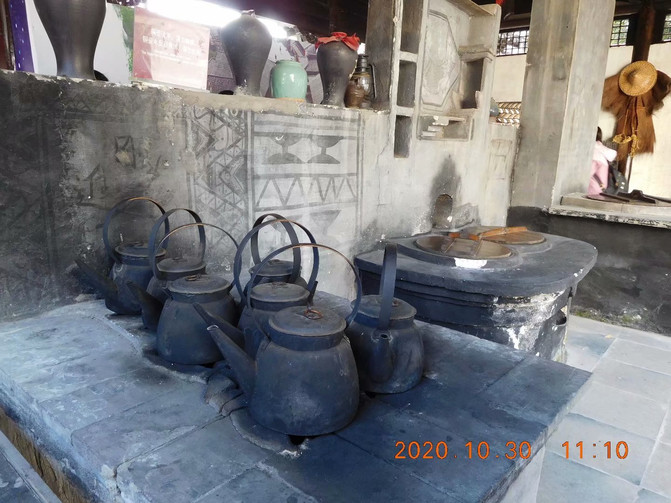
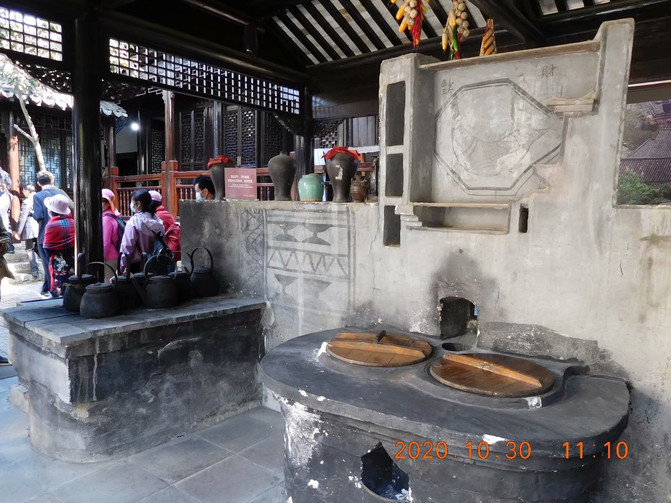
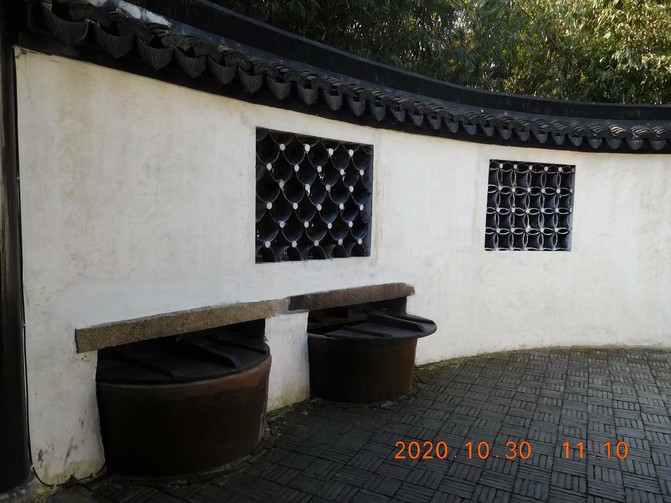
Next to the Spring Tea House, Aunt Aqing "fought with wisdom" Diao Deyi, from her prime to her face full of wind and frost.
In the Diao family courtyard, the door should be high and the red door should be hidden. What kind of joys and sorrows have it been?
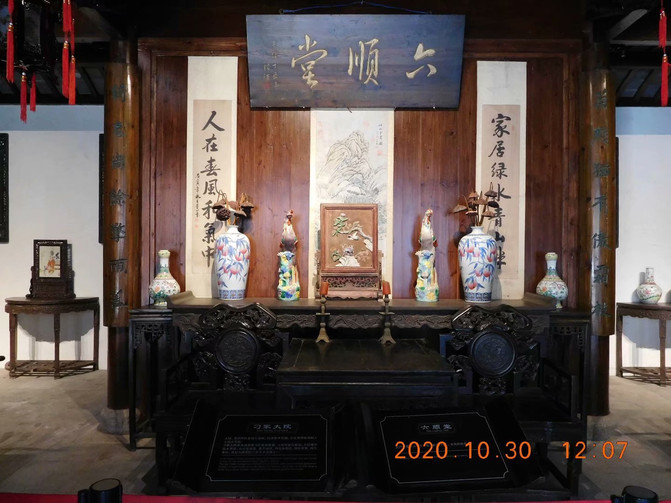
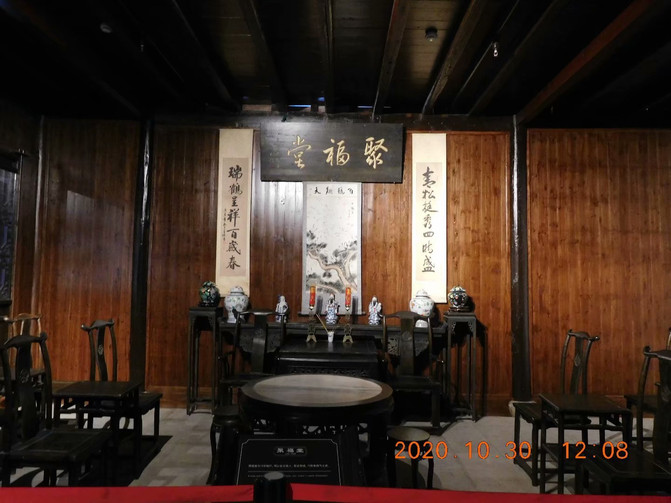
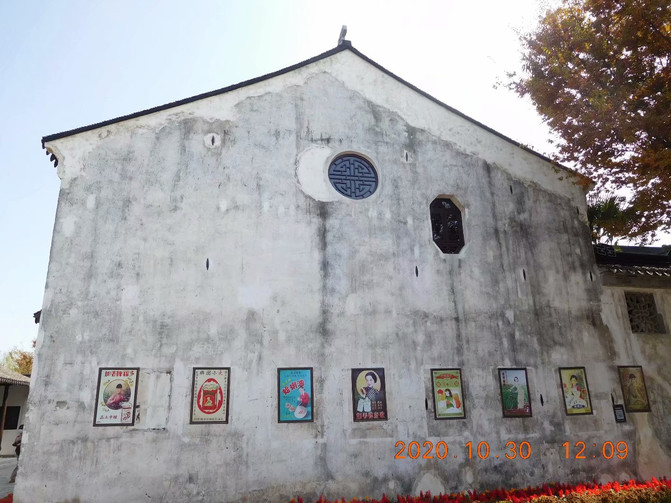
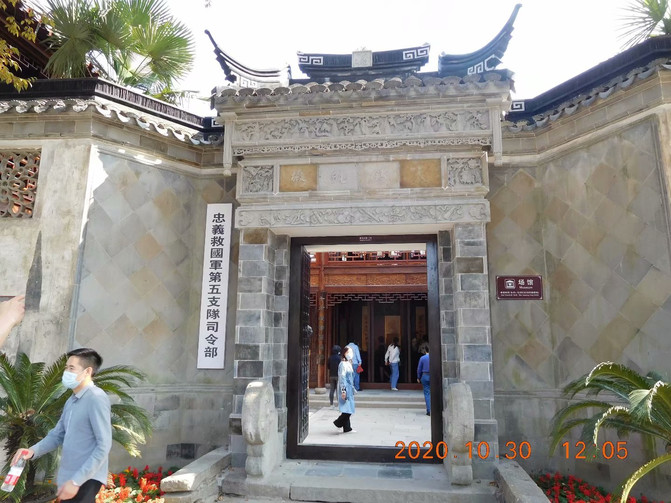
There are many specialty foods on the old street, which are delicious, and the prices are reasonable. The street is full of Yangcheng Lake hairy crabs, which you can taste.
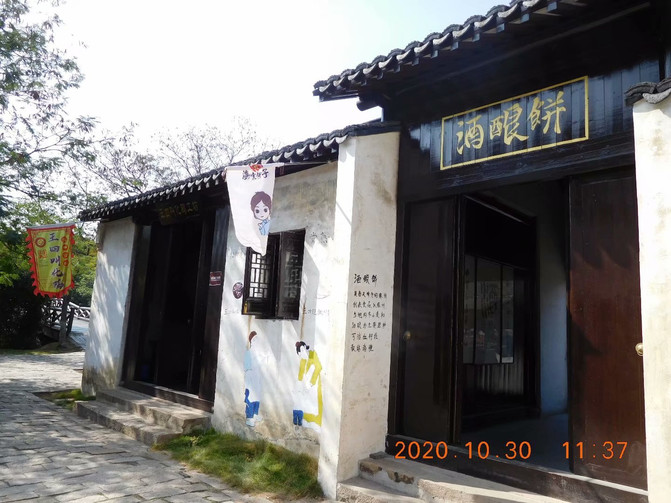
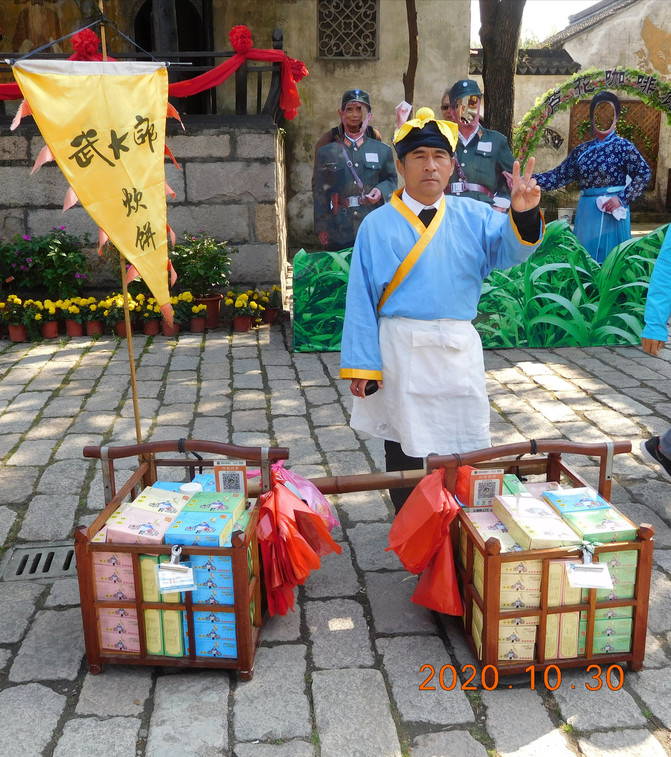
There is also Wu Dalang, who buys sesame seeds. When you shoot him, he poses very collaboratively.
The difference between this place and other scenic spots is that there is a model opera "Shajiabang"."Shajiabang" is staged every day on the stage here, as well as flower carrying and wedding customs performances, which is the most obvious difference from other scenic spots.
In the Xichun Club, Aunt Aqing and Diao Deyi, who were performing "Fight of Wisdom" on the stage just now, faced you face to face. They taught you to sing "Fight of Wisdom" word by word and time again. Finally, they even asked you to go on stage and sing with them, but no group member dared to perform.
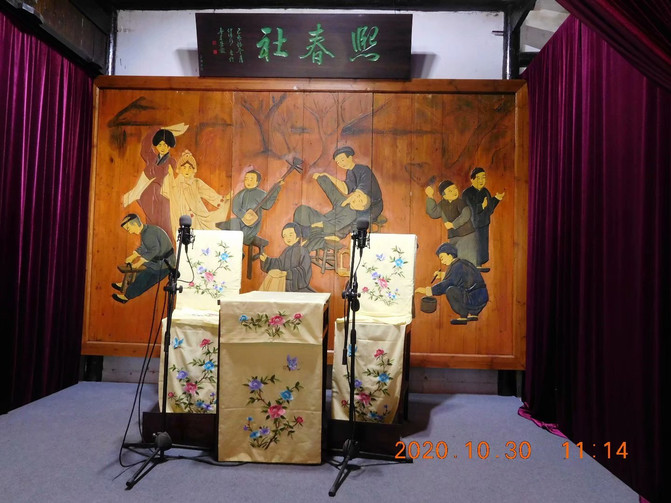
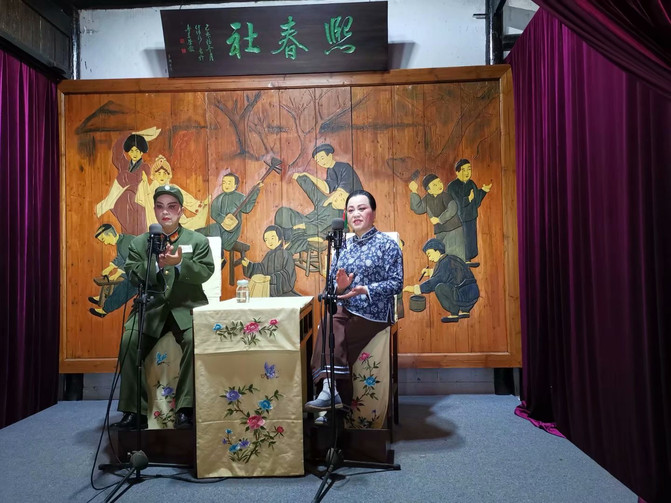
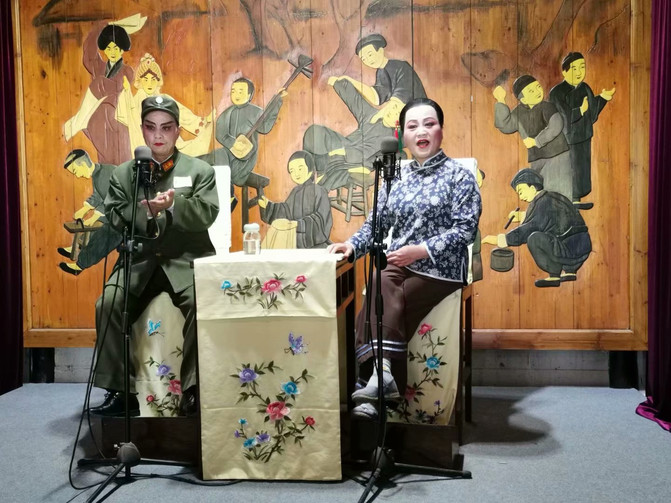
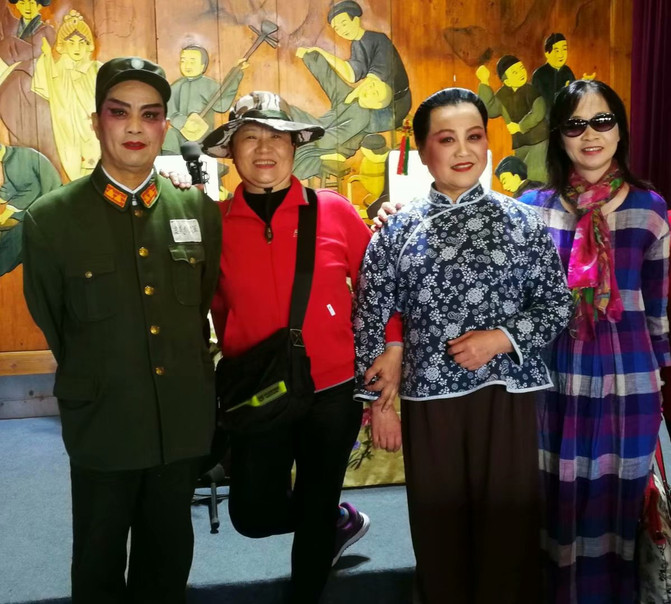
There are reed swamps everywhere, and the customs of Jiangnan water towns are displayed from time to time. Deep in the reeds, reed flowers float, tender as Shajiabang, and also have a desolate winter feeling. Unfortunately, the lotus flowers on the lotus pond on the water surface are gone, and the lotus leaves are withered, leaving a withered and incomplete beauty.
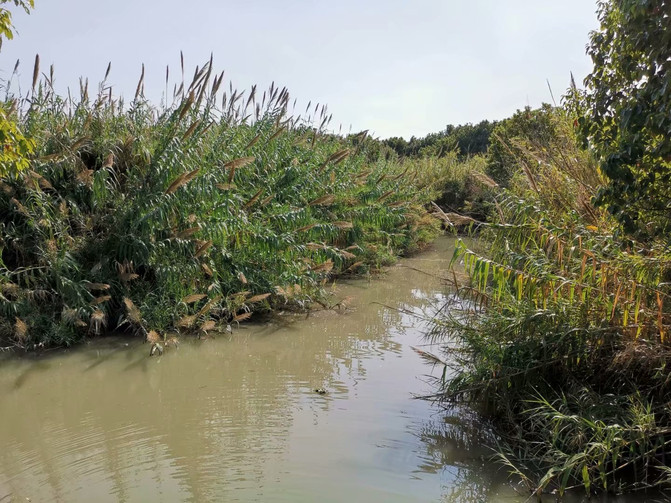
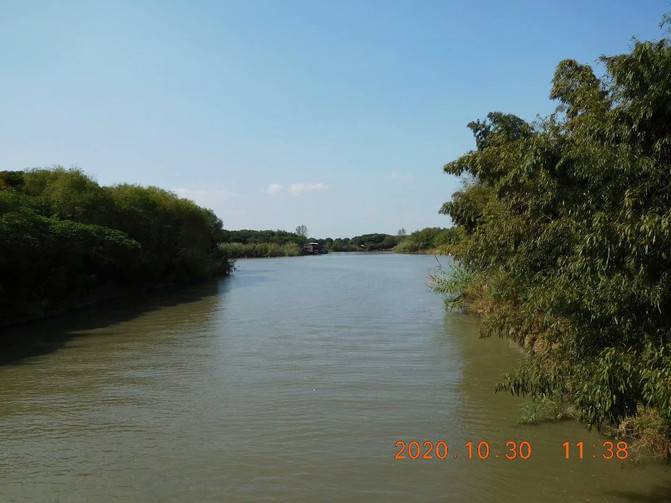
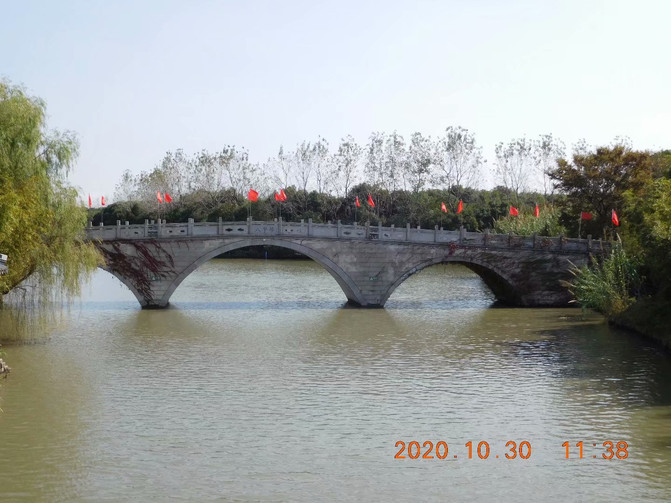
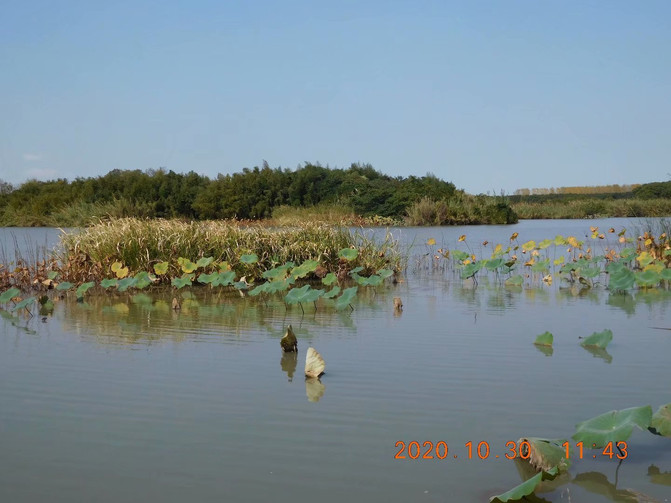
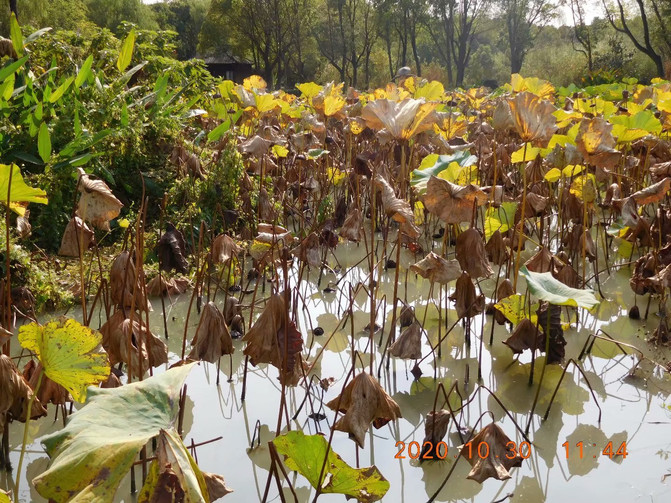
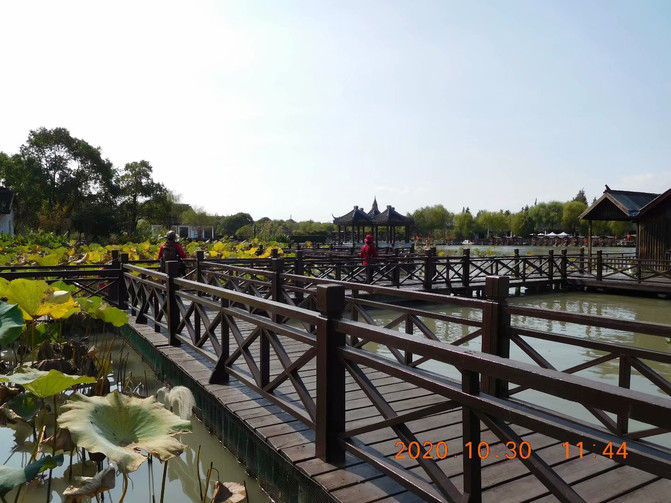
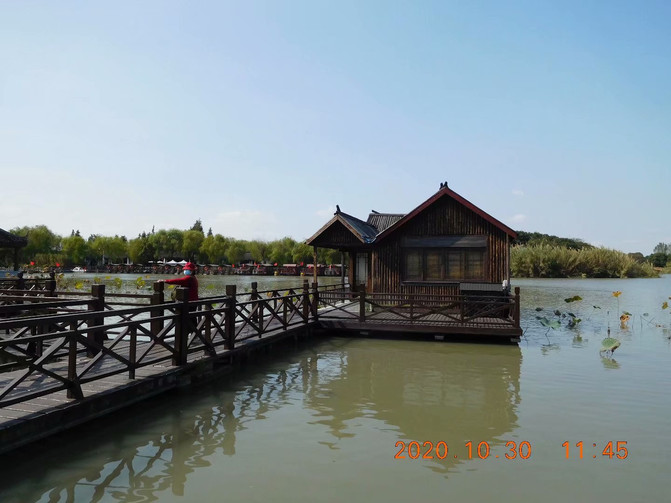
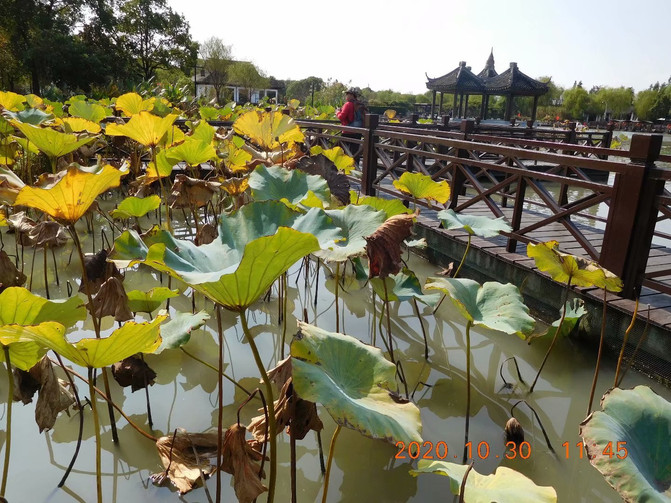
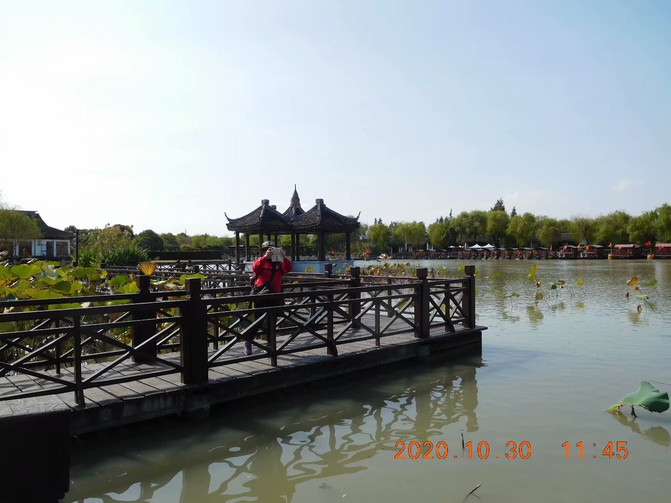
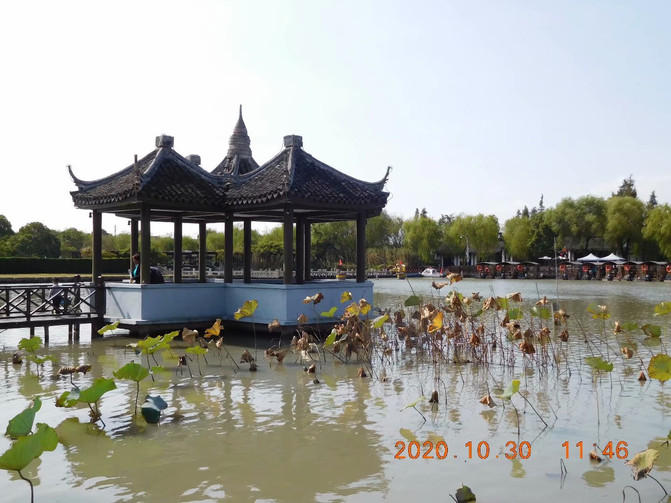
Shajiabang Scenic Area not only has beautiful natural reed swamps, but also rowing boats on the water surface of the pastoral water town, which are all very unique. Speaking of reed swamps and boatmen, we have to talk about Golden Roots. He was the first person to contract a hand-operated boat in Shajiabang Reedang Scenic Area. Six years ago, the scenic area asked him to contract a hand-operated boat, but Lao Jin was reluctant. But after only a week of rocking the boat, Lao Jin found that the business was very good, sometimes earning more than 200 yuan a day. "Singing folk songs and rocking the boat, making 20,000 yuan a year. I'm very happy." The 60-year-old blond root said happily. Today, the number of cranking boats in the scenic area has increased from 2 to 70, and the annual income of each cranking boat farmer has reached 14,000 yuan. Another ironclad evidence that tourism has helped local people get rich.
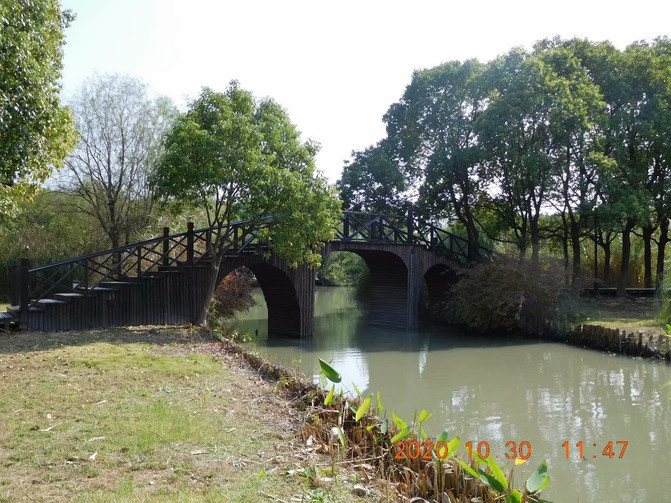
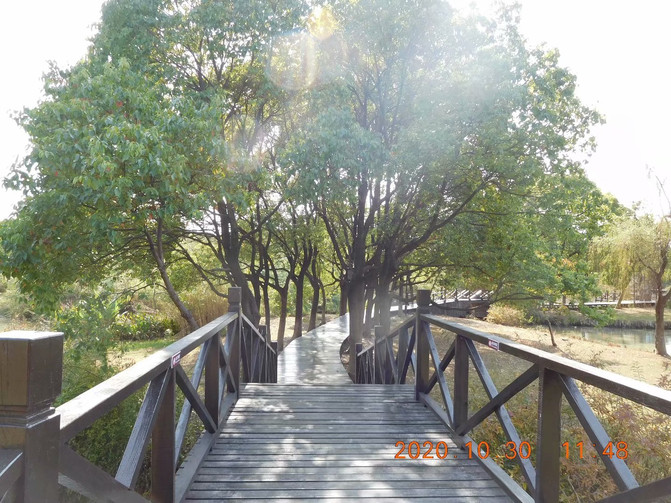
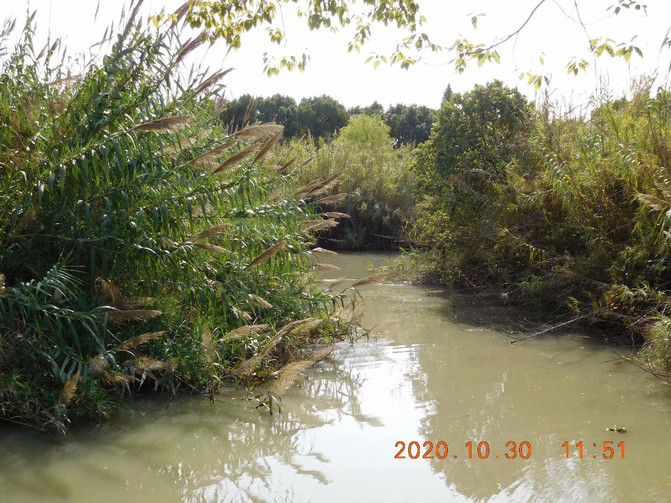
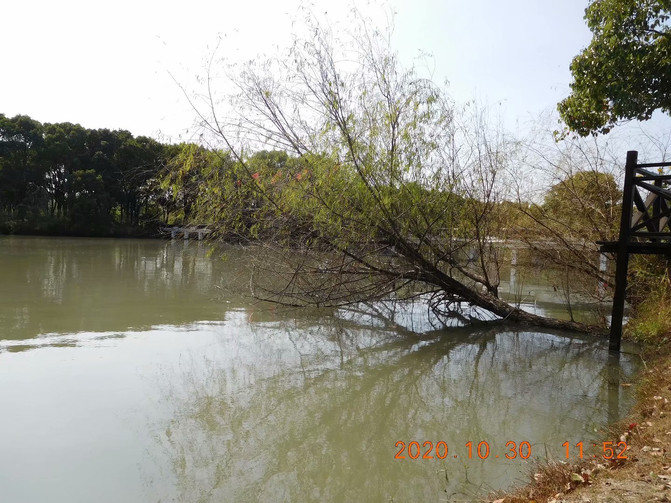
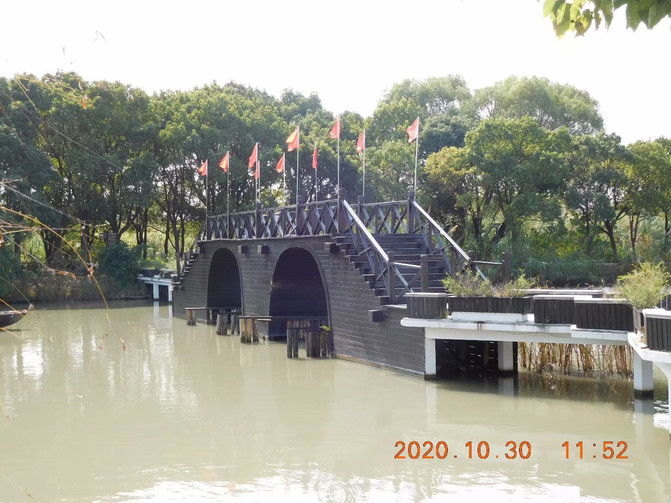
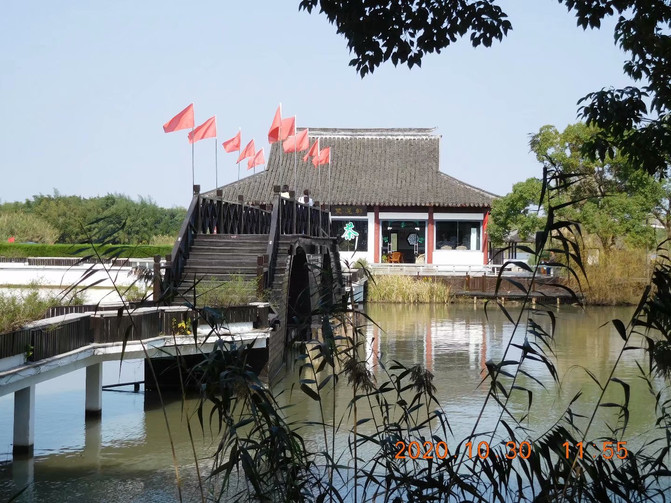
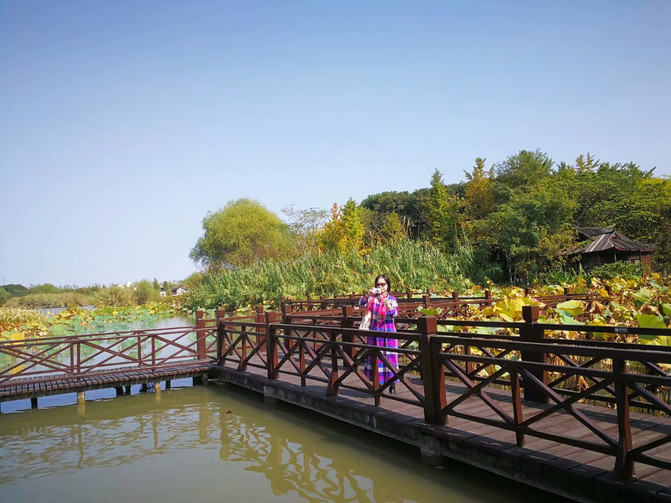
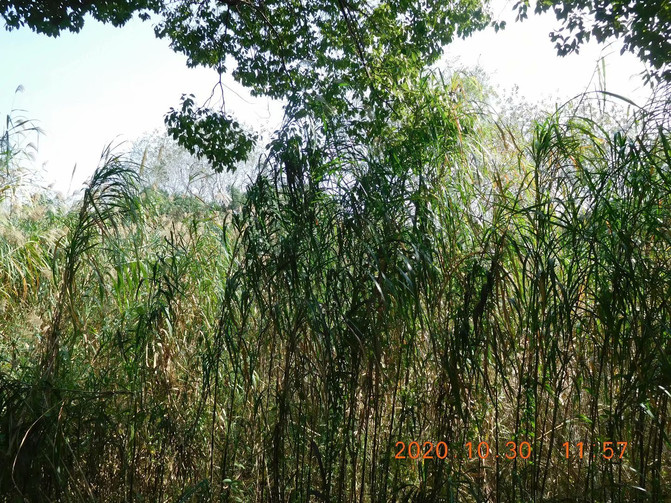
Waiting for the ship at the Chunlai Pier. There are two types of cruise ships here. In addition to the rowing boats mentioned above, the other type is a mechanical one. We are on a mechanical one. We can't hear the boatwoman humming the local fishing song. We only hear the sound of the engine. The tour boats were swinging around in the river, and we had long been unable to distinguish the north, south and west. However, it was our fault that the wounded of the New Fourth Army wanted to hide here. Why couldn't the Japanese devils find the New Fourth Army in the reed swamps?
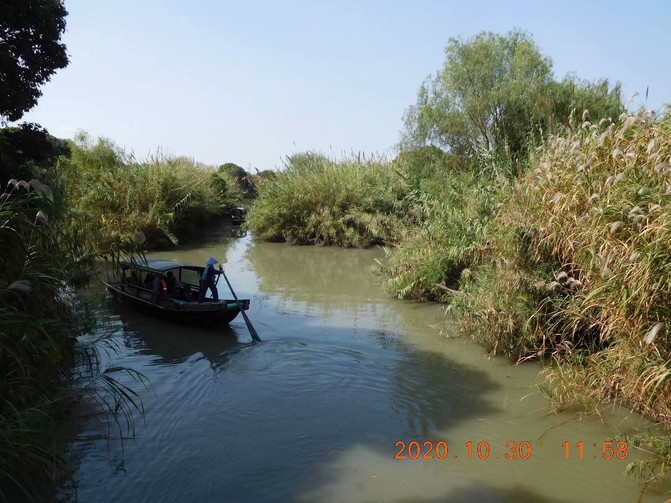
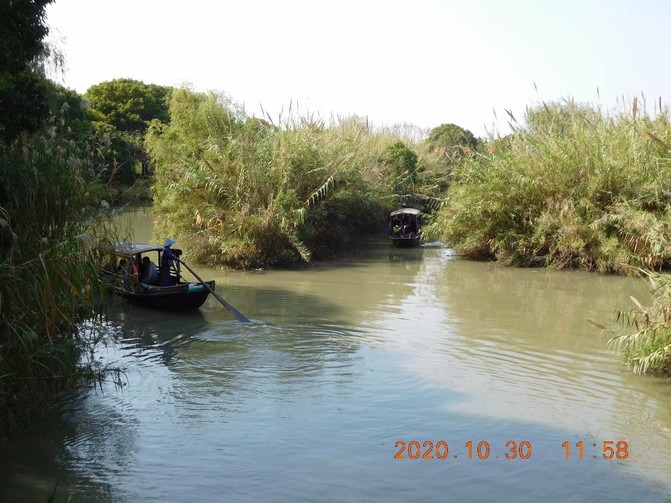
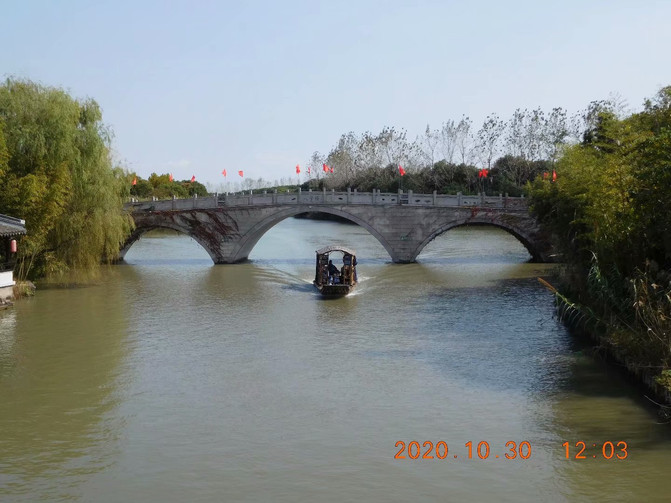
This is a rowing boat
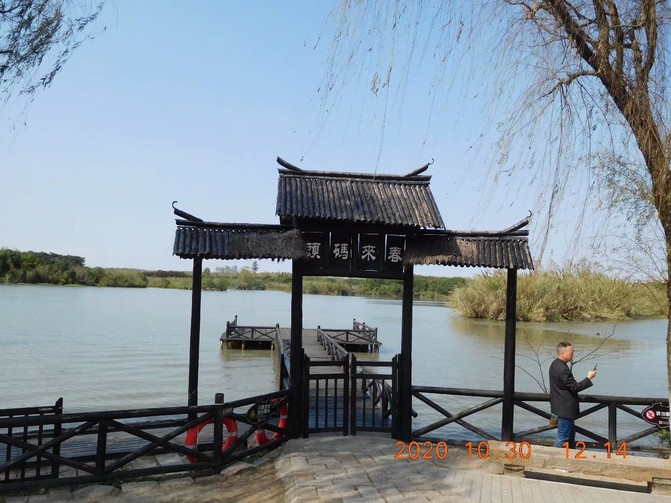
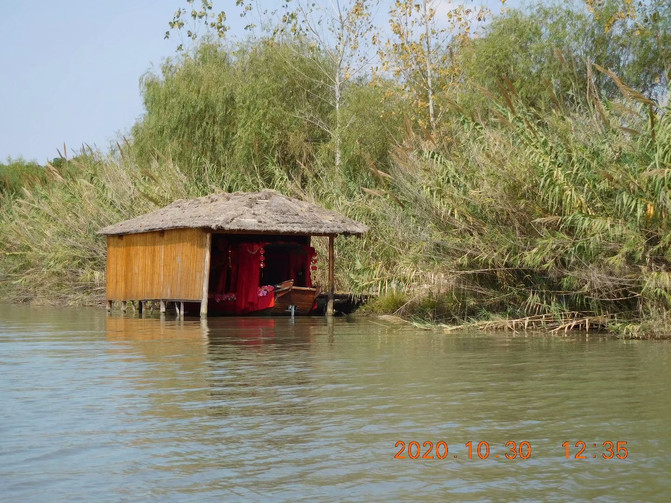
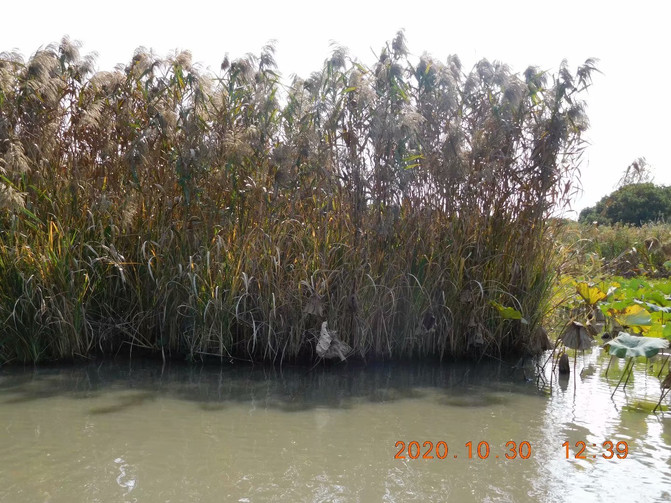
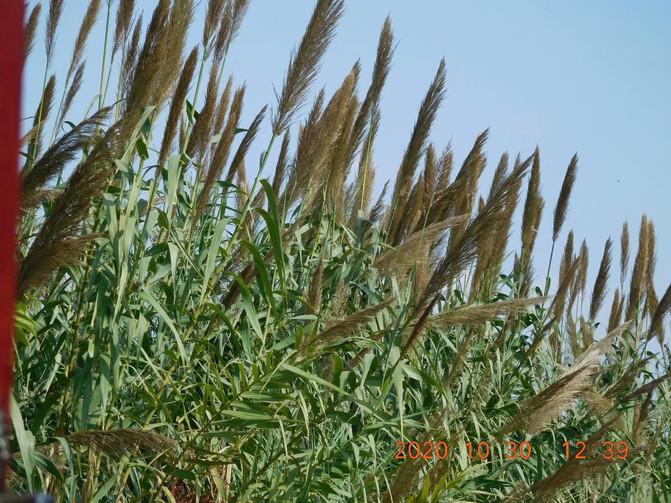
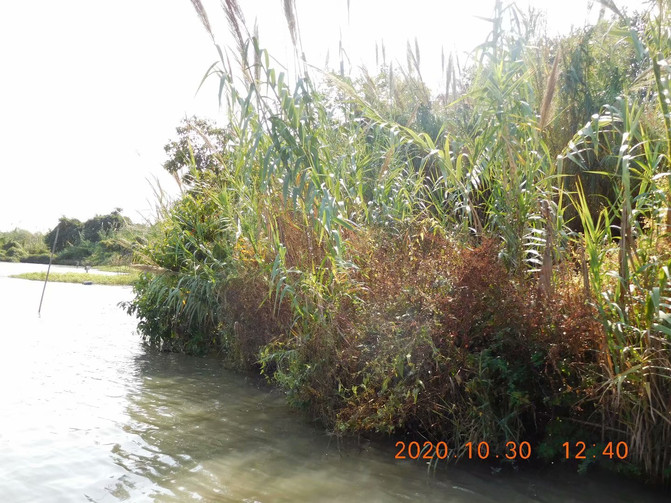
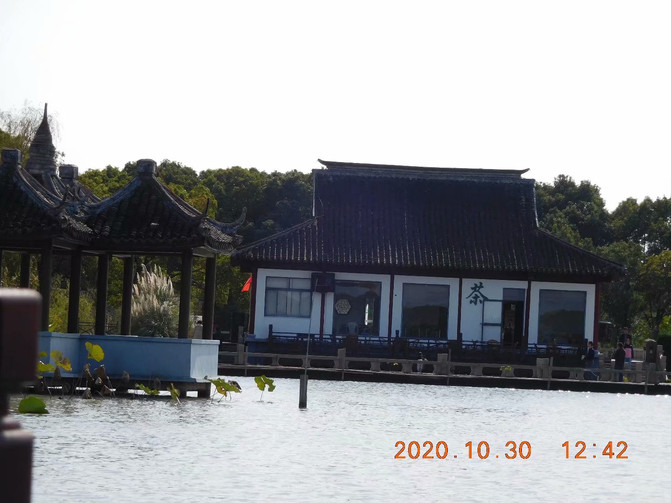
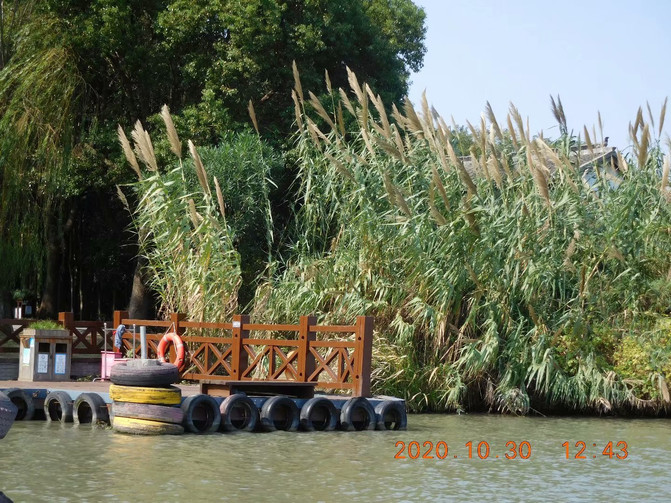
A reed swamp photographed by a boat
That play was sung in Shajiabang back then, but today's people in Shajiabang have sung this play off the stage and made the whole town rich. Moreover, they will continue to sing. I can't imagine what kind of drama Shajiabang will sing!
(1914 2020/11/20)
Previous Article:Unlock Shanghai at night in summer, a 4-hour tour of Songcheng along the Huangpu River. 9 highlights tell you what to see at night
Next Article:Ten-day tour of Nanjing, Suzhou, Shanghai, Wuzhen and Hangzhou (two adults and two children)
